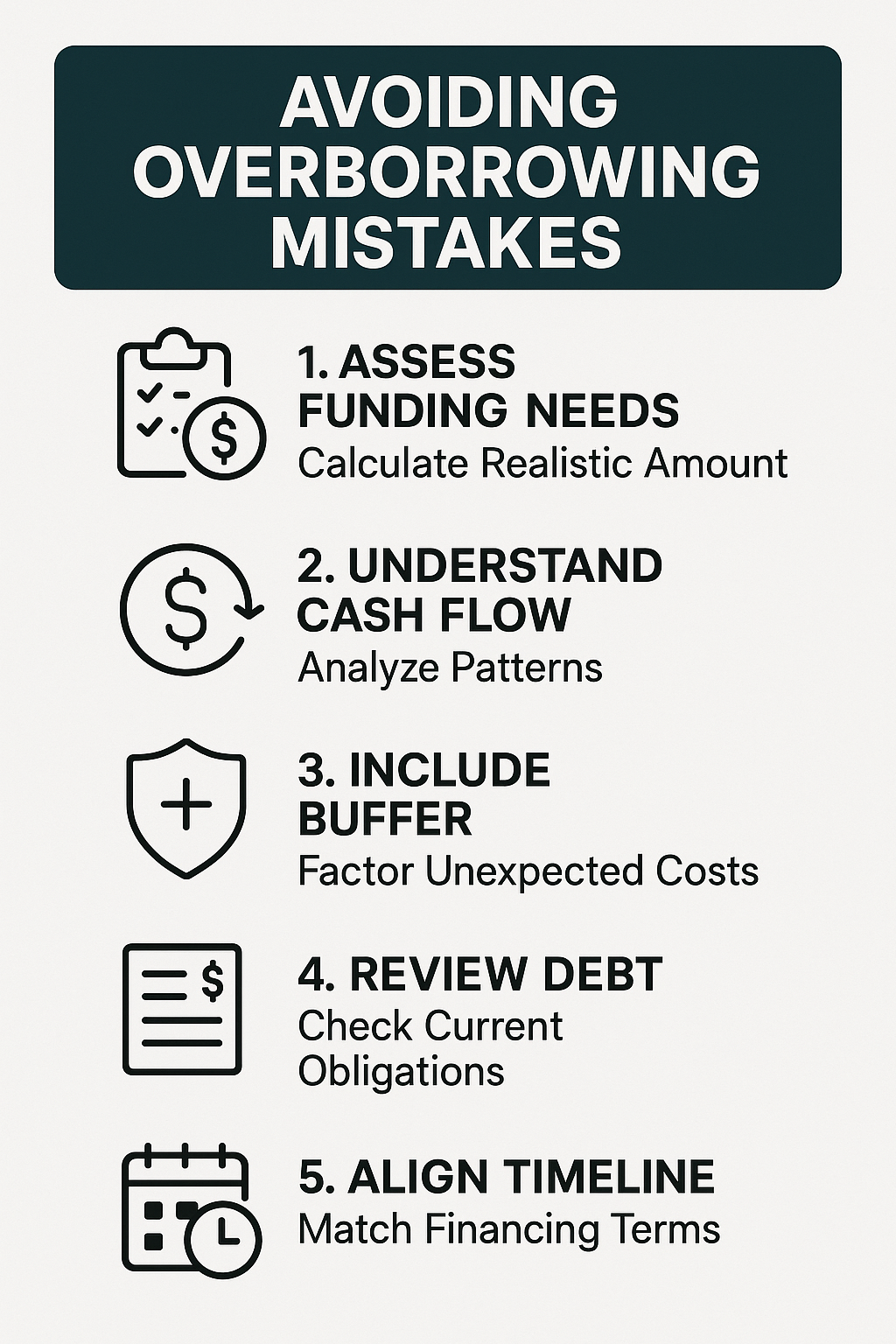Securing business funding can be a game-changer for growth, but many entrepreneurs stumble into costly traps along the way. Understanding the top 7 funding mistakes business owners make could save your company thousands of dollars and prevent financial strain that might derail your success.
From unclear repayment terms to overborrowing beyond your means, these common pitfalls catch even experienced business owners off guard. The good news? Most of these mistakes are entirely preventable with the right knowledge and preparation.
Let's explore the most dangerous funding errors and how you can steer clear of them to secure the best possible financing for your business.
Common Questions About Business Funding Mistakes
Q: What's the biggest mistake business owners make when seeking funding?
The most significant error tends to be not accurately assessing their financial situation before applying for funding. Many merchants fail to create realistic financial plans or understand their exact funding needs, which can lead to securing inappropriate financing options that don't match their business model or repayment capacity.
Q: How can unclear contracts become a funding trap?
Unclear contracts often contain hidden fees, confusing repayment terms, or automatic renewal clauses that merchants don't fully understand. These contract issues can result in unexpected costs and long-term financial commitments that might strain your business operations.
Q: Why do business owners fall into overborrowing situations?
Overborrowing typically happens when merchants don't properly calculate how much funding they actually need or fail to consider their realistic repayment capacity. The excitement of accessing capital can lead to taking more than necessary, creating excessive debt burdens that inhibit growth rather than supporting it.
Warning Signs of Funding Mistakes
Recognizing the warning signs of funding mistakes early can help you course-correct before serious financial damage occurs. These red flags often appear before you're locked into unfavorable terms.
- You can't clearly explain the total cost of your financing arrangement to another person
- The funding provider pressures you to sign immediately without time for review
- You haven't calculated exactly how the daily or weekly payments will affect your cash flow
- The contract contains terms you don't fully understand or automatic renewal clauses
- You're considering funding primarily because it's available, not because you have a specific need
Many business owners ignore these warning signs because they're focused on accessing capital quickly. However, taking time to address these concerns upfront might save you from significant financial stress later.
Impact of Overborrowing on Business Operations
Overborrowing represents one of the most dangerous funding mistakes business owners make, and its effects can ripple through every aspect of your operations. When you take on more debt than your business can comfortably handle, the consequences extend far beyond simple repayment challenges.
- Daily cash flow becomes strained as large portions go toward debt service rather than operations
- Your ability to respond to unexpected opportunities or emergencies becomes severely limited
- Employee morale and retention may suffer if payroll becomes inconsistent due to cash flow issues
- Vendor relationships can deteriorate when payments become delayed or inconsistent
The key to avoiding overborrowing lies in honest assessment of your repayment capacity and focusing on cash flow management rather than simply accessing the maximum available funding. Many successful merchants have found that borrowing conservatively allows for more sustainable growth patterns.
Understanding Unclear Contracts and Hidden Terms
Unclear contracts represent a significant trap that catches many business owners unprepared. The complexity of modern financing agreements can obscure important terms that dramatically affect your total costs and obligations.
- Holdback rates that fluctuate based on seasonal performance or other variables
- Additional fees for processing, origination, or administrative services not clearly disclosed upfront
- Prepayment penalties that prevent you from paying off the advance early to save on costs
- Personal guarantees that put your personal assets at risk beyond your business
- Automatic renewal clauses that extend your commitment without explicit approval
The best defense against unclear contracts involves asking specific questions about every term and requesting plain-language explanations of anything you don't completely understand. Legitimate funding providers should be willing to explain their terms clearly and give you adequate time for review.
Steps to Calculate Your True Funding Needs

Accurately determining your funding requirements prevents both overborrowing and underfunding situations. This systematic approach helps you secure the right amount of capital for your specific business needs.
- Create a detailed budget that includes all planned expenses, from inventory and equipment to marketing and operational costs
- Analyze your cash flow patterns to understand seasonal fluctuations and identify when you'll need additional working capital
- Factor in a reasonable buffer for unexpected expenses or opportunities, typically 10-20% above your calculated needs
- Review your existing debt obligations to ensure new payments won't strain your ability to meet current commitments
- Consider the timeline for your funding needs and choose financing terms that align with your expected return on investment
This careful planning process might take additional time upfront, but it typically results in more favorable funding terms and better alignment between your financing and business objectives.
Strategies to Avoid Renewal Traps
Renewal traps can lock businesses into cycles of expensive financing that become increasingly difficult to escape. These situations often develop gradually, making them particularly dangerous for unsuspecting merchants.
- Read all contract terms carefully, paying special attention to automatic renewal clauses and the process for ending your agreement
- Understand exactly when and how you can terminate your funding relationship without penalties or additional fees
- Keep detailed records of all payments and track your progress toward completing the advance repayment
- Plan your exit strategy before signing any agreement, including how you'll transition to different financing if needed
- Stay current with regulatory changes that might affect your rights and obligations under the funding agreement
- Maintain relationships with multiple funding sources so you have alternatives when your current arrangement ends
The key is treating every funding arrangement as temporary and maintaining the flexibility to make different choices as your business evolves and grows.
Avoiding the top 7 funding mistakes business owners make requires careful planning, thorough contract review, and honest assessment of your financial capacity. While accessing capital can accelerate business growth, the wrong approach can create financial burdens that persist for years.
Remember that the best funding decision isn't always the fastest or easiest option available. Taking time to understand repayment costs, avoid overborrowing, and negotiate clear contract terms typically results in better outcomes for your business.
By staying informed about these common pitfalls and maintaining realistic expectations about your funding needs, you can secure the capital necessary for growth while protecting your business's long-term financial health.

.png)






